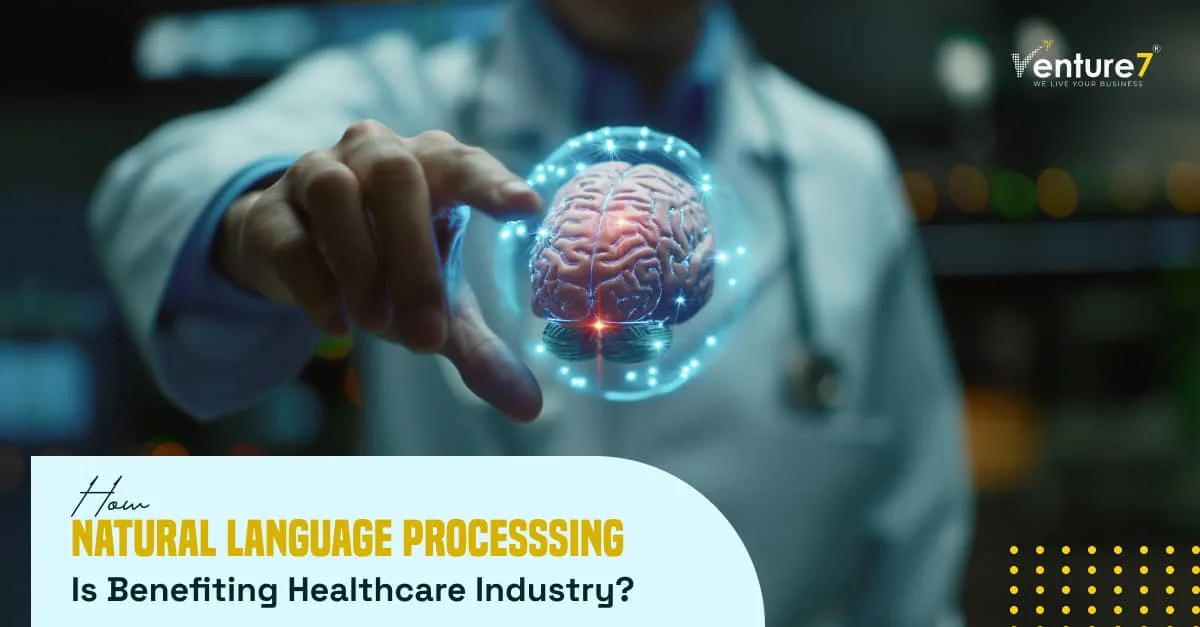Healthcare professionals are rapidly embracing technologies such as Natural Language Processing to overcome the limitations of traditional technologies and enhance the growth of the industry. Natural Language Processing (NLP) is a component of artificial intelligence which provides an ability to a computer system to understand, interpret, and manipulate the human language. This technology works with an aim to bridge the gap between computer understanding and human communication in order to analyze large amounts of natural language data in an efficient manner.
Natural Language Processing and its advantages:
NLP has benefitted the healthcare industry in several ways by mapping diverse data elements present in unstructured format into structured fields in order to improve clinical data integrity. This technology has the ability to interpret speech and update records accordingly which has enabled physicians to dedicate maximum time to patient care and make changes in the treatment by analyzing patients’ progress in an electronic format. A physician can easily take notes while the patient speaks, helping to reduce the chances of duplication of efforts which significantly contribute to improving the quality of patient care.
This technology has enabled physicians to recommend further procedures on the basis of past records and medical prescriptions. NLP provides accurate historical data to healthcare professionals which helps them make critical decisions pertaining to treatment with the use of diagnostic results that help them understand patients’ profiles. This technology has the ability to extract important information from diagnostic reports, doctors’ letters, which, in turn, ensures completeness and accuracy of the health profile of individual patients.
How do NLP algorithms work?
Natural Language Processing techniques have enabled healthcare professionals to deliver value-based care by offering them an efficient way to evaluate the quality of care. NLP algorithms have the ability to automate various processes that eliminates the need for human intervention, thereby leaving no room for the occurrence of errors that were earlier present during the process of information extraction.
This technology has enhanced the process of data analytics with the use of electronic health records and analysis of both structured and unstructured data in an efficient manner, along with machine learning algorithms.
Natural Language Processing has enabled the healthcare sector to accurately infer meanings from extracted data that has led to improved patient outcomes. It also enables accurate billing and improved clinical workflows with enhanced clinical documents via computer-assisted coding.
This technology extracts information from unstructured notes of physicians and automates the process of assigning a billing code. This has helped hospitals process bills quickly and accurately without wasting much of the patients’ time. The growing complexities in the billing codes and other documentation processes have made it necessary for healthcare professionals to integrate the Natural Language Processing system as it has the ability to identify missing and inconsistent information that was made during the documentation process.
How has Natural Language Processing revolutionized healthcare?
Earlier, the movement of patients’ records from one healthcare provider to another was a cumbersome process as it caused substantial gaps in the transfer process, sometimes even leading to data loss and many errors. The use of Natural Language Processing has made processes simpler while also ensuring that any unstructured data be analyzed and further formatted as per patients’ information that includes medications, medical procedures, allergies, etc. These lists can be thereby be used by physicians anytime to bring up notes, critical information, and patients’ medical history.
Natural Language Processing has made it possible for healthcare professionals to provide customized attention to their patients with the use of advanced tools such as voice recognition which improves the quality of Electronic Health Records (EHR) and documentation process. This technology has provided a way to determine the accuracy of notes with the use of advanced inbuilt tools.
NLP has paved a way for patients to be completely involved as far as the quality of their care is concerned about simplifying complex terms and presenting it in a way that is understandable by patients. These tools simplify the better understanding of electronic health records and other information technology tools.
What’s in it for the patients?
Patients can access the patient portal that is provided by the healthcare professionals anytime in order to keep track of their health, access their reports, which provides them with an opportunity to focus on self-health management. The advanced tools enable patients to make more informed decisions regarding their health and wellbeing. Natural Language Processing has majorly contributed to smoother interactions between patients and health information technology tools. It has diversified the horizon of patient health literacy but not keeping it limited to just the healthcare professionals.
This technology has provided healthcare providers with the ability to detect complex patients who need enhanced care coordination and work towards it. Natural Language Processing algorithms extract meaningful information from diverse datasets in order to identify social determinants of the health of individual patients and develop strategies to deliver value-based care to complex patients. This, in turn, improves care coordination for patients who are suffering from behavioral health issues.
Through this revolutionary technology, the healthcare industry increasingly has the ability to mitigate potential risks and errors in its diverse departments, and ensuring more accurate and faster techniques to promote individual wellbeing.





